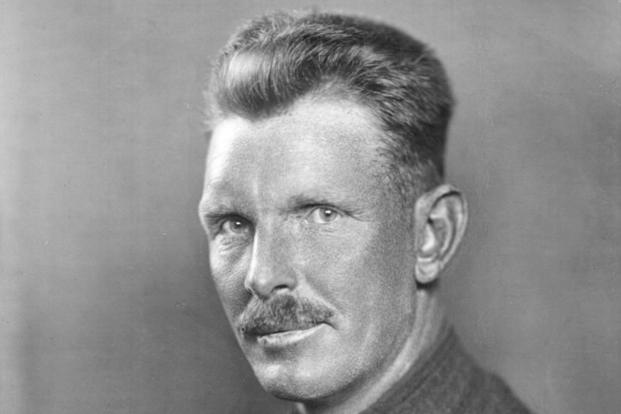Diary of Sgt. Alvin York
May 21, 1918
LeHavre, France:
"So we got to France at Le Havre. There we turned in our guns and got British guns. Well, we went out from Le Havre to a little inland camp. I had taken a liking to my gun by this time. I had taken it apart and cleaned it enough to learn every piece and I could almost put it back together with my eyes shut. The Greeks and Italians were improving. They had stayed continuously on the rifle range for a month or two and got so they could shoot well. They were fairly good pals, too. But I missed the Tennesseans. I was the only mountaineer in the platoon. I didn't like the British guns so well. I don't think they were as accurate as our American rifles. Ho ho.
"My buddies were some boys from the East. There was Cpl. Murray Savage -- he got killed in the Argonne -- and Harry Parsons from Brooklyn, New York. I think he was a vaudeville actor. And there were a lot of other Eastern boys who were in my platoon.
"It sure was a mixed platoon, with the Greeks and Italians and New York Jews, and there were some Irish and one German. I sure did miss the mountain boys from Tennessee and Kentucky. But I got to like those other boys in my platoon. I was the largest in the platoon.
"We got our first gas masks in Le Havre. I was still a private. The man in charge of my platoon was Lt. Stewart from Georgia. The company commander was Capt. Danforth of Augusta, Georgia. Our platoon sergeants were Sgt. Early and Sgt. Harry Parsons.
"Early was busted for being A.W.O.L. after we left Le Havre. After that, he was acting corporal. He was a good soldier. Parsons was never busted. He was a good soldier, too. I was made a corporal just before we went into the St. Mihiel drive."
Bio:
In World War I, during fighting in the Argonne Forest, Sgt. Alvin York single-handedly captured or killed an entire German battalion. The feat brought him the Congressional Medal of Honor and some 50 other citations. His story was immortalized in the movie, "Sergeant York" (1941).
York was born in 1887 in Pall Mall, Tennessee, a hamlet on the Cumberland Plateau. In the isolated country along the Wolf River, he hunted and became an expert marksman. His deep religious faith led him to seek exemption as a conscientious objector, but his appeals were denied, and in 1917, York was drafted into the Army.
On Oct. 8, 1918, York participated in an attack on a German machine-gun battalion. His patrol was pinned down by enemy fire, and his superior and others were wounded. Taking command, York brought his marksmanship into play. After he had killed more than a dozen Germans, York was charged by several of the enemy. He shot them all. At this point, the German officer surrendered his command of 90 men. As York marched them back to the American lines, he forced his prisoners to tell other Germans to surrender. York reached the lines with 132 prisoners.
After the war, York returned to Tennessee, married his childhood sweetheart and settled on a farm on the Wolf River. In later years, his interest in better education for mountain children led him to found a vocational school at Jamestown, Tenn. He died in Nashville, Tenn., on Sept. 2, 1964.
Keep Up With the Best in Military Entertainment
Whether you're looking for news and entertainment, thinking of joining the military or keeping up with military life and benefits, Military.com has you covered. Subscribe to the Military.com newsletter to have military news, updates and resources delivered straight to your inbox.














